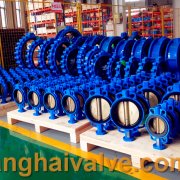ABS Certification in Marine Butterfly Valves
In the field of marine butterfly valves, ABS certification is a crucial qualification for entering the international shipbuilding and offshore markets. Here’s a detailed overview of how ABS certification applies to marine butterfly valves:
1. What is ABS Certification?
ABS (American Bureau of Shipping) is a globally recognized classification society that sets technical standards for the design, construction, and maintenance of ships and offshore structures.
An ABS certificate confirms that a product complies with ABS rules in terms of design, material selection, manufacturing process, and performance, making it suitable for harsh marine environments.
2. Types of ABS Certification for Butterfly Valves
| Certification Type | Description | Typical Application |
| Type Approval Certificate (TAC) | Confirms that a valve model meets ABS standards | For batch production of standard models |
| Product Design Assessment (PDA) | A detailed review of the valve’s design and intended service | For customized or critical-use products |
| Manufacturing Assessment (MA) | Assesses factory quality management and production capability | Usually combined with TAC or PDA |
| Individual Product Certification | Each valve is individually tested and inspected by ABS | Required for critical shipboard systems (e.g., fire-fighting, ballast) |
3. Common Marine Applications of ABS-Certified Butterfly ValvesBallast Water Systems
Cooling Water Circuits
Firefighting Systems
Fuel and Oil Lines
Sea Water Inlet/Outlet Systems
4. ABS Requirements for Marine Butterfly Valves
| Item | Requirement |
| Materials | Must meet ASTM or marine-grade standards (e.g., CF8M, Bronze, Ductile Iron) |
| Design | In accordance with ANSI/API or ISO standards and marine conditions (corrosion, vibration resistance) |
| Pressure Rating | Commonly PN10, PN16, or 150 PSI |
| Tests | Includes pressure, sealing, and performance testing |
| Documentation | Material certificates, test reports, drawings, and QA documents are required for ABS review |

 tanghaivalve.com
tanghaivalve.com

 © Copyright 2020 Tianjin Tanghaidongyang Valve Co., Ltd. All Rights Reserved.
© Copyright 2020 Tianjin Tanghaidongyang Valve Co., Ltd. All Rights Reserved.